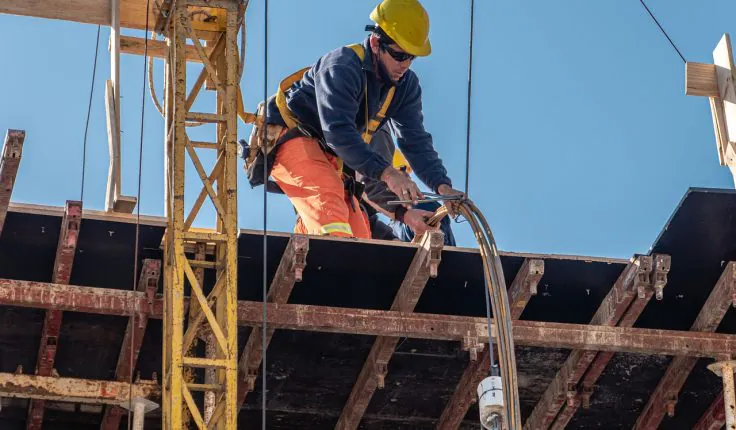How do commercial contractors manage timelines and budgets?

Managing timelines and budgets is one of the most crucial aspects of any construction project. Whether it’s building a retail complex, an office space, or a warehouse, the success of the project largely depends on how well the contractor can balance time and cost efficiency. Commercial contractors Toronto are known for their systematic approach, using advanced planning, technology, and communication to deliver projects on schedule and within budget. Let’s explore how professional contractors manage these two vital elements of construction while ensuring quality and client satisfaction.
1. Detailed Project Planning and Scheduling
The foundation of effective time and budget management starts with thorough project planning. Commercial contractors Toronto begin by understanding the project’s scope, objectives, and specifications. They prepare a detailed project schedule that outlines every task, from design approval to material procurement and site preparation.
They use tools like Gantt charts and project management software to create a clear timeline with milestones. These tools help track progress, assign responsibilities, and predict potential delays. By organizing tasks in logical sequences, contractors can ensure smooth workflow and minimize downtime.
Similarly, in the planning stage, they estimate the budget by breaking down costs into categories such as labor, materials, permits, and equipment. Home improvement contractors also follow a similar strategy when managing residential renovation projects, ensuring that every dollar is accounted for before work begins.
2. Accurate Cost Estimation and Budget Allocation
Budget management requires precision and experience. Commercial contractors Toronto rely on historical data, current market rates, and supplier quotes to develop accurate cost estimates. They allocate budgets to each phase of the project, creating financial checkpoints to monitor spending.
This method helps avoid overspending and ensures there is a contingency fund for unforeseen issues. Skilled contractors often include a buffer—typically around 10%—to handle price fluctuations or unexpected challenges.
Home improvement contractors, too, adopt this strategy when working on kitchen remodels, home additions, or renovations. They emphasize transparency, keeping homeowners informed about material costs, design changes, and potential budget adjustments.
3. Effective Communication and Coordination
One of the main reasons construction projects face delays or cost overruns is poor communication. Experienced commercial contractors Toronto maintain consistent communication among all stakeholders—clients, architects, subcontractors, and suppliers.
They hold regular meetings to discuss progress, address challenges, and make necessary adjustments. Clear communication ensures that everyone involved understands the goals, expectations, and changes in the project.
Home improvement contractors also value communication, especially since they work closely with homeowners who may have evolving design preferences. Keeping everyone updated helps avoid misunderstandings and ensures the project runs smoothly.
4. Smart Resource Management
Managing materials, equipment, and manpower efficiently is essential to stay within the timeline and budget. Commercial contractors Toronto plan material procurement based on project phases to avoid storage issues and cash flow strain.
They collaborate with reliable suppliers to ensure timely delivery of quality materials. By using modern project management tools, contractors can monitor inventory, track labor productivity, and ensure that resources are used optimally.
Similarly, home improvement contractors rely on well-coordinated resource management to prevent delays and reduce waste during home renovations or remodels.
5. Risk Assessment and Contingency Planning
Every construction project faces potential risks—such as weather disruptions, labor shortages, or design changes—that can impact time and cost. Experienced commercial contractors Toronto conduct detailed risk assessments during the planning phase.
They identify possible challenges and create contingency plans to minimize their impact. For example, if bad weather delays outdoor work, contractors may shift focus to indoor activities to keep progress on track.
This proactive approach ensures that the overall project timeline and budget remain intact. Home improvement contractors apply similar strategies, especially in older homes where unforeseen structural issues can arise once renovation begins.
6. Use of Technology and Project Management Tools
Modern commercial contractors Toronto leverage technology to manage projects more efficiently. Tools like Procore, Buildertrend, and Microsoft Project allow them to track progress in real-time, monitor costs, and manage communication.
These platforms enable contractors to generate instant reports, update clients, and detect potential issues early. By using digital tools, they can streamline operations, save time, and maintain financial accuracy throughout the construction process.
Even home improvement contractors benefit from these technologies by offering clients digital estimates, 3D renderings, and progress tracking dashboards. This improves transparency and client confidence.
7. Quality Control and Inspections
Maintaining high quality is just as important as managing time and money. Commercial contractors Toronto conduct regular site inspections to ensure that the construction meets industry standards and project specifications.
By identifying issues early, they avoid costly rework or delays. Adhering to strict quality control processes also ensures that the project passes all safety and compliance inspections, preventing potential legal or financial penalties.
Home improvement contractors follow a similar routine, conducting inspections after each phase—such as plumbing, electrical, or finishing—to ensure everything aligns with the agreed-upon standards.
8. Financial Tracking and Regular Reporting
Continuous financial monitoring helps contractors stay within budget. Commercial contractors Toronto maintain detailed records of expenses, invoices, and receipts. They review these reports weekly or monthly to compare actual spending with projected costs.
If discrepancies arise, they make adjustments immediately, either by reallocating funds or optimizing labor and material use. This disciplined approach prevents budget overruns and builds client trust.
Home improvement contractors adopt similar practices by keeping clients updated on payment schedules and project costs, maintaining transparency throughout the process.
9. Experience and Professional Expertise
Finally, the experience of commercial contractors Toronto plays a vital role in managing timelines and budgets. Seasoned contractors have a deep understanding of construction workflows, supplier networks, and local building codes.
Their expertise allows them to anticipate challenges before they occur and find cost-effective solutions without compromising quality. Similarly, home improvement contractors leverage their experience to deliver efficient, timely renovations that meet client expectations.
Conclusion
Managing timelines and budgets in construction requires meticulous planning, effective communication, and smart use of technology. Commercial contractors Toronto excel at balancing these factors to ensure projects are delivered on time and within financial constraints. Their ability to anticipate risks, allocate resources wisely, and maintain transparency makes them invaluable partners in commercial development.
Related Posts

What Makes Full Brief Underwear Ideal for All-Day Support?
Andrin Andrin / December 17, 2025


















